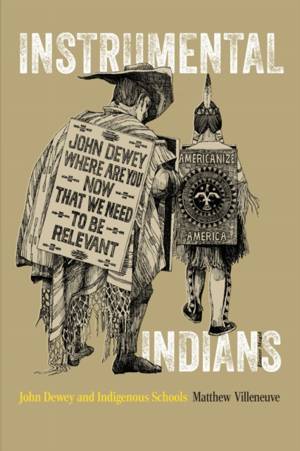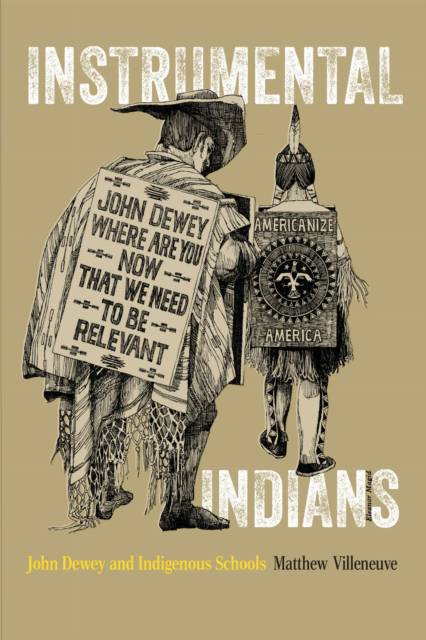
- Afhalen na 1 uur in een winkel met voorraad
- Gratis thuislevering in België vanaf € 30
- Ruim aanbod met 7 miljoen producten
- Afhalen na 1 uur in een winkel met voorraad
- Gratis thuislevering in België vanaf € 30
- Ruim aanbod met 7 miljoen producten
Zoeken
Omschrijving
An examination of how settler colonialism shaped the thinking of America's leading philosopher of democracy and education, John Dewey
John Dewey is regarded as a towering figure in the history of American philosophy, widely remembered by educators as an advocate for experiential and child-centered pedagogy, as evidenced by the mantra "learning by doing." At first blush, such ideas appear to a share strong resonance with Indigenous ways of teaching and learning. After all, Native educators have long emphasized the importance of hands-on learning drawn from close relationships to place. This resemblance begs the question: What might Dewey have learned from Indigenous people? Instrumental Indians shows that, despite such affinities, Dewey wrote a great deal about Indians as he imagined them rather than as they are. He did so through the lens of the frontier discourse, a pervasive cultural mythology that represented Indigenous people as savage foils and background actors in the settlement of a frontier across North America. Consequently, Dewey's imagined Indians became both instrumental and instrumentalized in his philosophy, a paradox that reduced Indigenous people to mere evidence for his pragmatism rather than as a contemporary constituency who might have benefited from its application. By instrumentalizing Indians, Dewey's contributions to American philosophy were made under the shadow of US settler colonialism. As Matthew Villeneuve demonstrates, Dewey's disregard for his Indigenous contemporaries was far from harmless. His career coincided with the height of the federal Indian boarding school system, an era when Native families were subjected to the violence of imposed schooling. Where Dewey failed to offer a critique of such antidemocratic schools, a contemporary of his, Oneida philosopher of education Laura Cornelius, succeeded. In 1920, Cornelius offered an Indigenous theory of democracy and education, an alternative the US government failed to pursue. In Instrumental Indians, Villeneuve provides the first comprehensive account of Dewey's relationship to Indigenous people--one that challenges the philosopher's place in the canon of democratic education.Specificaties
Betrokkenen
- Auteur(s):
- Uitgeverij:
Inhoud
- Aantal bladzijden:
- 320
- Taal:
- Engels
- Reeks:
Eigenschappen
- Productcode (EAN):
- 9781512829426
- Verschijningsdatum:
- 31/03/2026
- Uitvoering:
- Hardcover
- Formaat:
- Genaaid
- Afmetingen:
- 152 mm x 229 mm
- Gewicht:
- 580 g

Alleen bij Standaard Boekhandel
+ 130 punten op je klantenkaart van Standaard Boekhandel
Beoordelingen
We publiceren alleen reviews die voldoen aan de voorwaarden voor reviews. Bekijk onze voorwaarden voor reviews.







